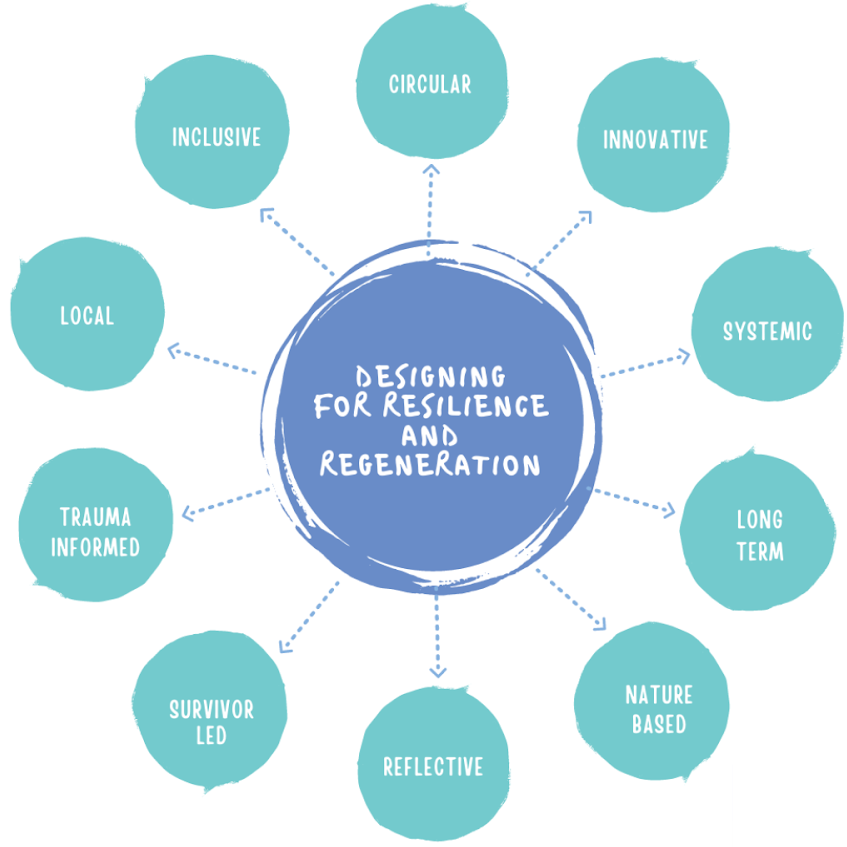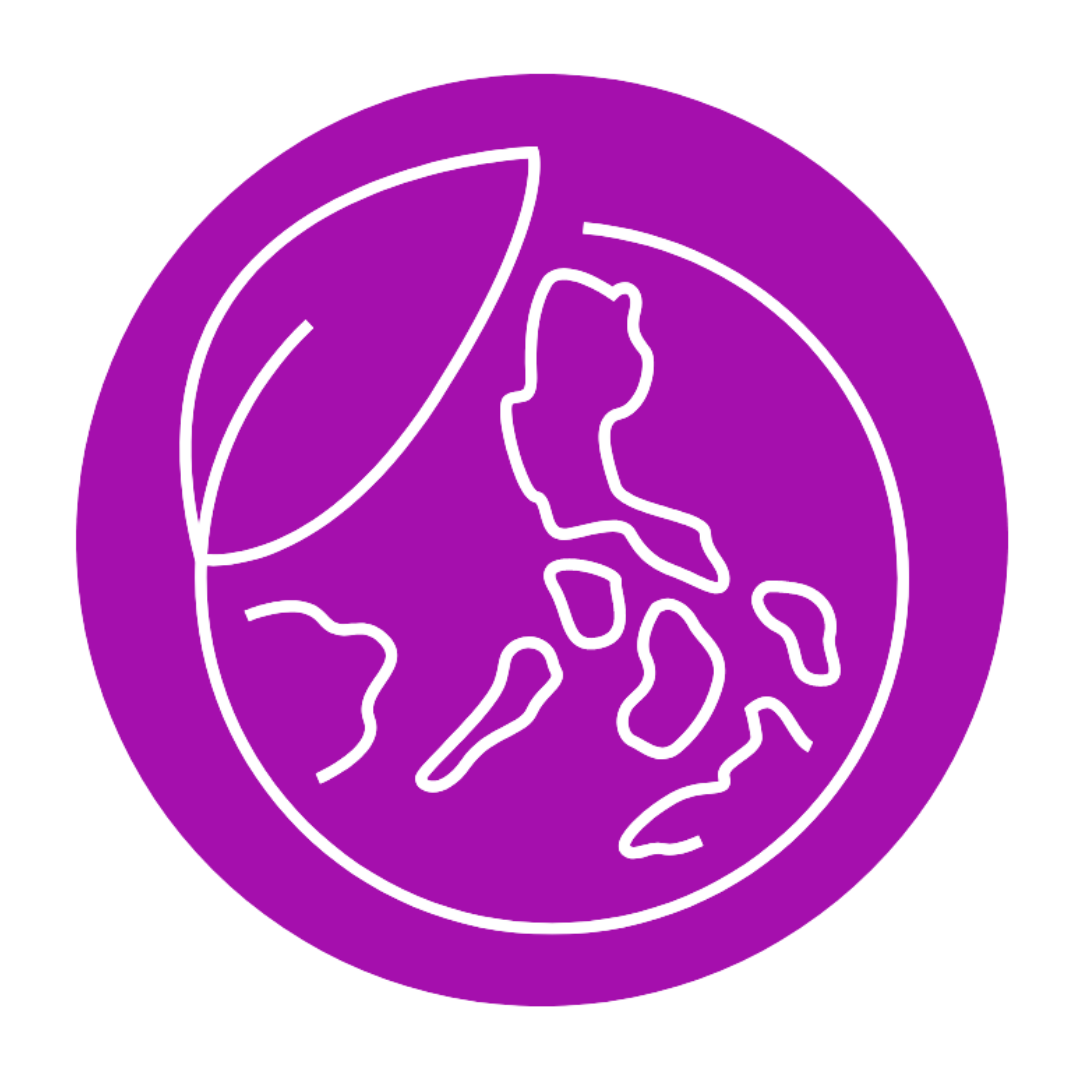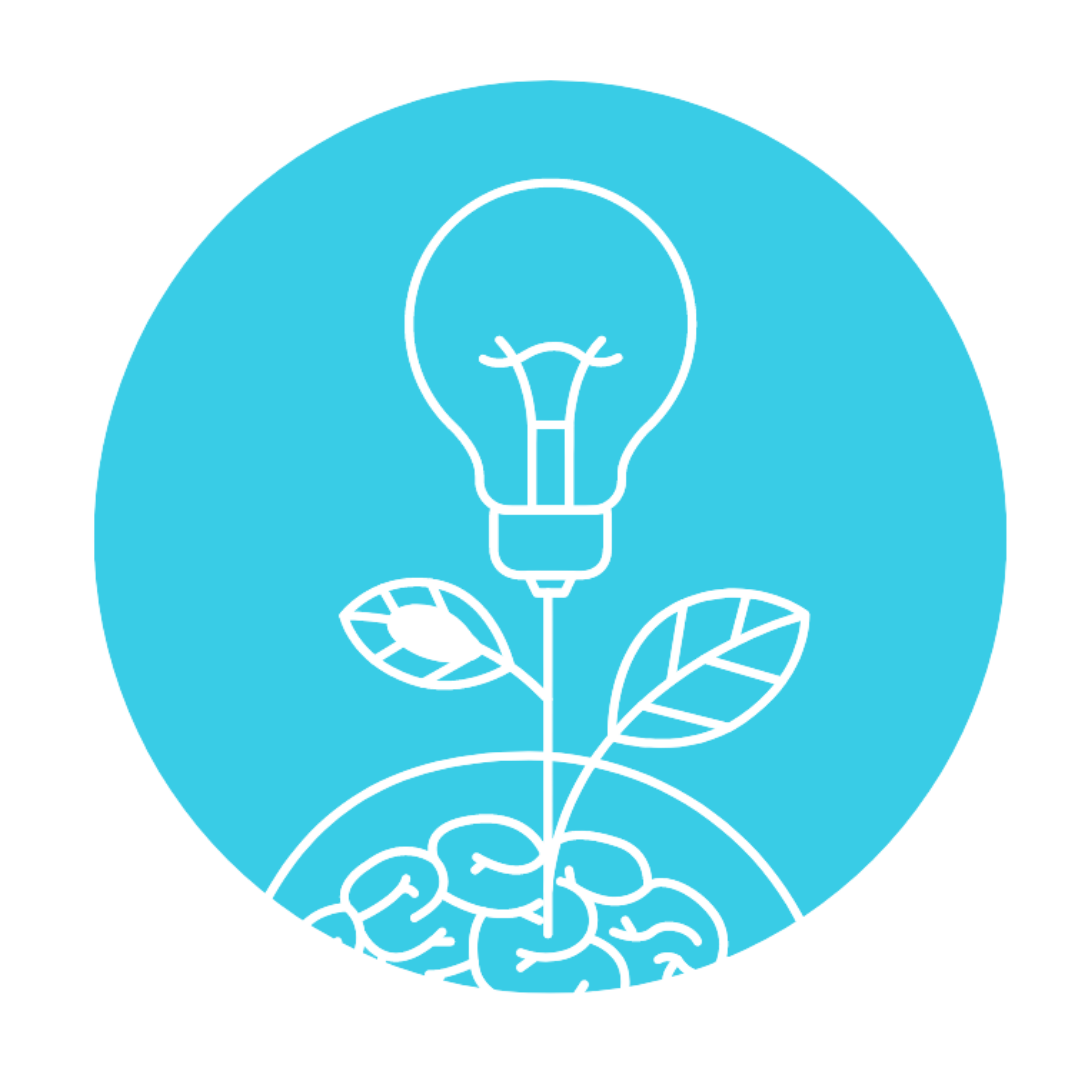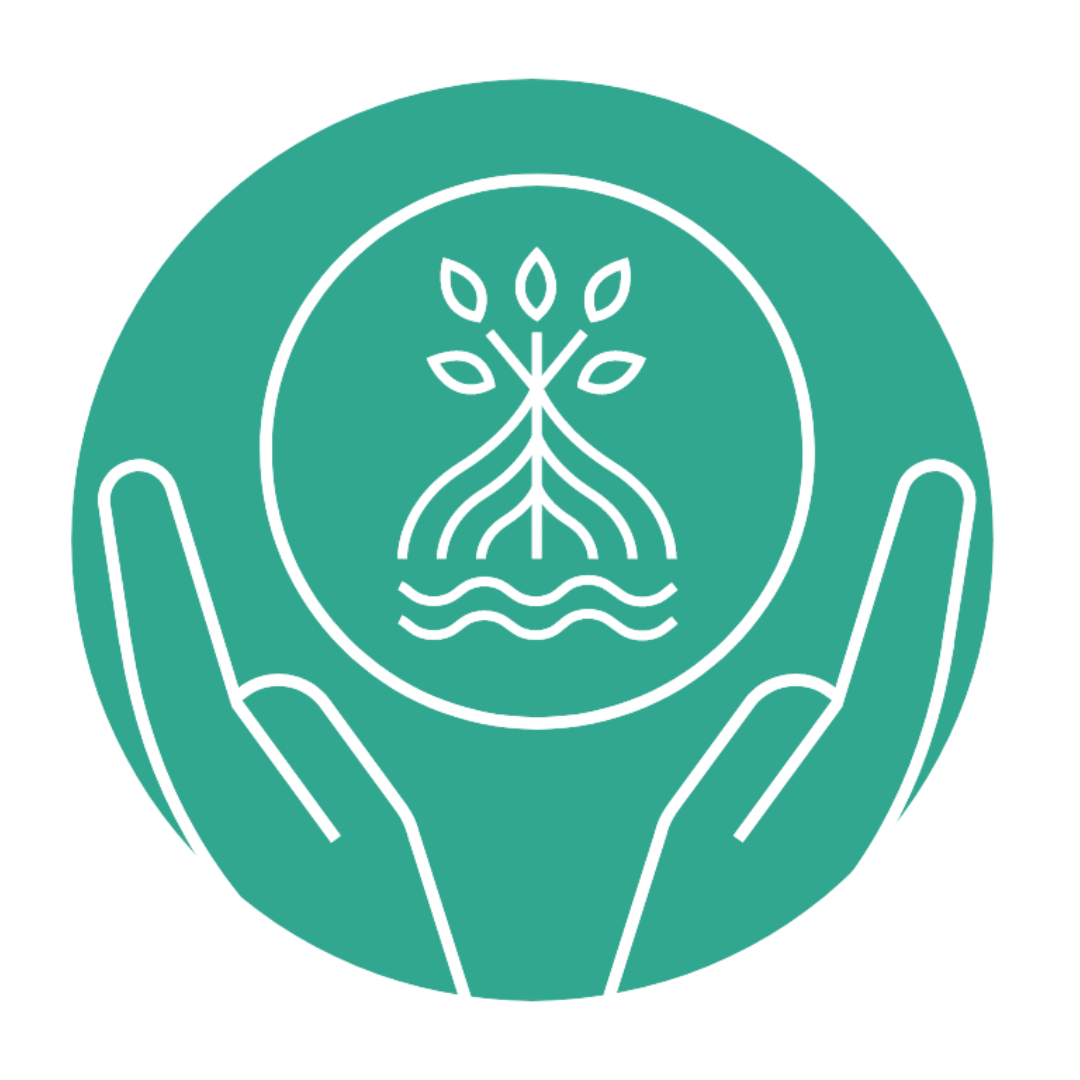The Regenerative Power of Community
How might we find our way and weave social safety nets in times of uncertainty and disruption? How might we design adaptive socio-cultural, economic, and ecological ecosystems with compassion, cooperation, and creativity?
With increasing intensity of extreme weather conditions, pandemics, conflict, and other vulnerabilities around the world, we are called to navigate complexity and uncertain futures in ways that highlight the power of local, resilient, and regenerative ecosystems of collaboration.
Purpose
Our purpose is to serve as ecosystem weaver to co-create cultural, social, economic, and ecological safety nets to prevent, adapt, and transform future shocks from the growing disruptions humanity and the planet are facing today and in the future.
Practices
To reimagine tomorrow, we are guided by the following practices to help us transform the narrative of Disaster Risk Reduction into that of Designing for Resilience and Regeneration.

Principles
 Collaboration brings systemic impact
We believe that together we can do better than if we were working in silos. In collaboration, we get to share resources, replicate and expand our impact in ways that can complement the limitations of each part of a system.
Collaboration brings systemic impact
We believe that together we can do better than if we were working in silos. In collaboration, we get to share resources, replicate and expand our impact in ways that can complement the limitations of each part of a system.
 Diversity fosters resilience
We believe that bringing diverse actors from formal to informal, to cross sectoral, intergenerational, and cross cultural collaborations, we invite more knowledge and experience to address complexities that we have never faced before.
Diversity fosters resilience
We believe that bringing diverse actors from formal to informal, to cross sectoral, intergenerational, and cross cultural collaborations, we invite more knowledge and experience to address complexities that we have never faced before.
 Trust based collaborations are more sustainable
We believe that trust is an important ingredient in long term collaborations offering ways to transcend differences and challenges.
Trust based collaborations are more sustainable
We believe that trust is an important ingredient in long term collaborations offering ways to transcend differences and challenges.
 Small is beautiful
We believe small but meaningful actions woven together are sometimes more effective than big projects that have challenges in maintaining its integrity and meeting impact directly.
Small is beautiful
We believe small but meaningful actions woven together are sometimes more effective than big projects that have challenges in maintaining its integrity and meeting impact directly.
 Place based regeneration through localization
Localizing actions offer direct results and keep resources flowing among members of a local habitat or an ecosystem offering long term self sufficiency and climate resilience.
Place based regeneration through localization
Localizing actions offer direct results and keep resources flowing among members of a local habitat or an ecosystem offering long term self sufficiency and climate resilience.
The Tree Pathways

A mapping and matchmaking platform
Weave needs and offers across informal or mutual aid actors, to bridge the gap where formal aid providers can’t meet.

A design lab for resilience and regeneration
Bring together formal and informal humanitarian innovators to address regenerative aid solutions as disaster response and preparedness to scale for systemic impact.

An ecosystem for regeneration
Support mapping of regenerative initiatives that promote local, circular, and nature based solutions. In the process, we weave social safety nets to reduce or manage systemic shocks from disruptions.